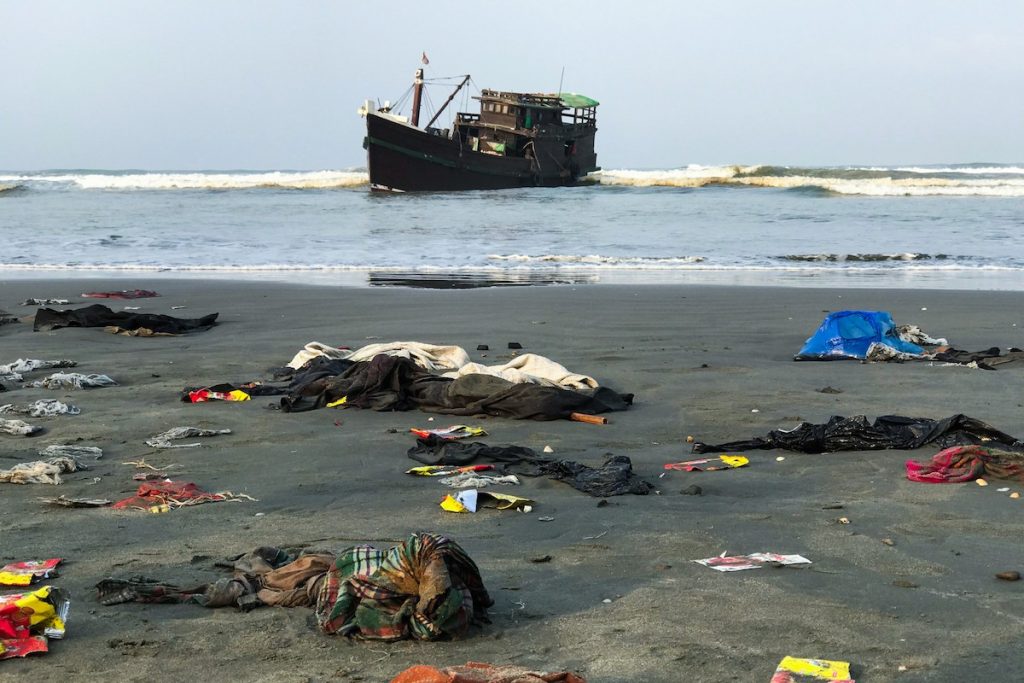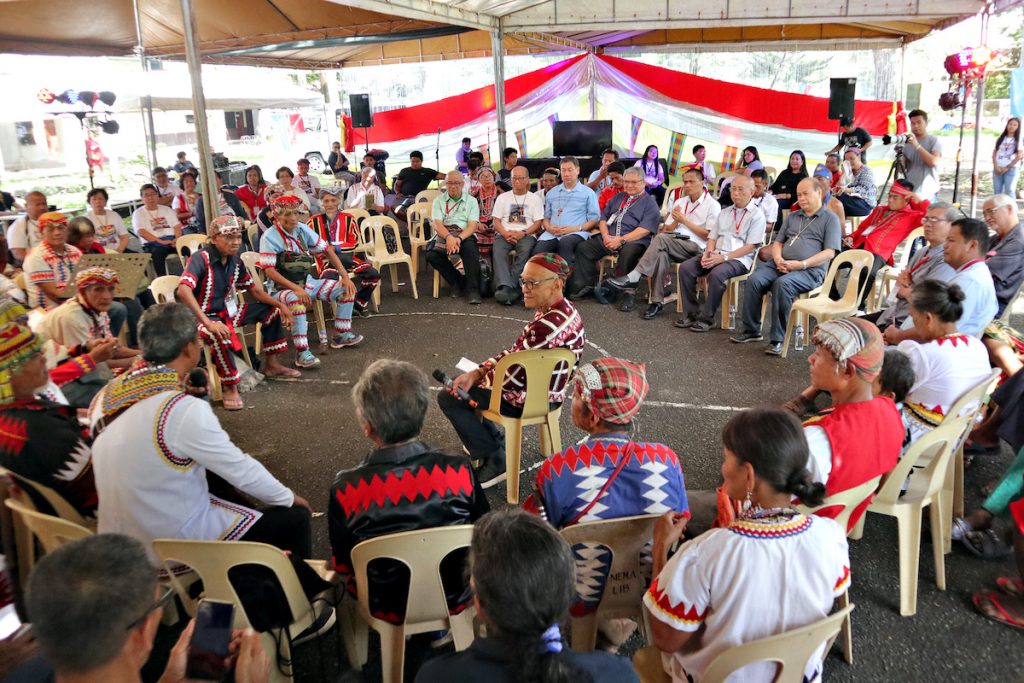
Pope Francis calls for a “better kind of politics” and a more “open world” in his new encyclical titled “Fratelli tutti,” which was released on Sunday, October 4, feast of St. Francis of Assisi.
The words “Fratelli tutti,” or “Brothers all,” are taken from the sixth of 28 admonitions, or rules, that St. Francis of Assisi issued for his brother friars to follow.
Pope Francis says these words offered the followers of the saint “a way of life marked by the flavor of the Gospel.”
The 45,000-word document containing eight chapters is Pope Francis’ longest encyclical since he became leader of the Catholic Church in 2013.
The pontiff expresses hope that the document, which proposes an ideal world of fraternity, will promote a “rebirth of a universal aspiration” toward “fraternity and social friendship.”
Pope Francis signed the encyclical in the town of Assisi on October 3, eve of the feast of St. Francis.
A papal encyclical is a specific category of papal document, a kind of letter concerning Catholic doctrine, sent by the pope and usually addressed especially to church leaders.
These are usually written in Latin and, like all papal documents, the title of the encyclical is usually taken from its opening words.
An encyclical is generally used for significant issues and is second in importance only to the popes’ Apostolic Constitution, the most solemn form of legislation issued by the pope.
Call for love
Pope Francis opens “Fratelli tutti” by calling “for a love that transcends the barriers of geography and distance.”
He notes that St. Francis always “sowed seeds of peace” and accompanied the “least of his brothers and sisters” wherever he would go during his lifetime.
St. Francis did not “wage a war of words aimed at imposing doctrines,” writes Pope Francis, but “simply spread the love of God.”
The new encyclical draws on previous Church teachings and also on the writings of St. Thomas Aquinas, a Doctor of the Church.
It also cites the “Document on Human Fraternity” that Pope Francis signed with the Grand Imam of Al-Azhar university, Ahmad Al-Tayyeb, in Abu Dhabi in 2019.
Pope Francis writes that the encyclical “takes up and develops some of the great themes raised in the document.”
He says he also incorporated “letters, documents and considerations … from many individuals and groups throughout the world.”
The pontiff says he does not intend the document to be a “complete teaching on fraternal love,” but rather help further “a new vision of fraternity and social friendship that will not remain at the level of words.”
In his introduction, the pope writes that the coronavirus pandemic, which he says “unexpectedly erupted” as he was writing the encyclical, underlined the “fragmentation” and the “inability” of countries to work together.
He says “Fratelli tutti” aims to contribute to the “rebirth of a universal aspiration to fraternity” and “brotherhood” between all men and women.

‘Dark clouds over close world’
Chapter One of the document, titled “Dark Clouds Over a Closed World,” notes the rise of “myopic, extremist, resentful and aggressive nationalism” in some countries, and “new forms of selfishness and a loss of the social sense.”
The chapter also notes that “we are more alone than ever” in a world of “limitless consumerism” and “empty individualism” where there is a “growing loss of the sense of history” and a “kind of deconstructionism.”
Pope Francis writes of “hyperbole, extremism and polarization” that have become political tools in many countries.
He describes it as a “political life” without “healthy debates” and “long-term plans” but rather “slick marketing techniques aimed at discrediting others.”
“We are growing ever more distant from one another,” he says, adding that voices “raised in defense of the environment are silenced and ridiculed.”
The pontiff reiterates his concern over a “throwaway society” where the unborn and the elderly are “no longer needed” and other kinds of wastefulness proliferate, “which is deplorable in the extreme.”
The chapter also discusses economic inequalities and calls for women to possess “the same dignity and identical rights as men.”
It draws attention to the scourge of human trafficking, “war, terrorist attacks, racial or religious persecution.”
The pope says these “situations of violence” now constitute a “piecemeal” third world war.
He warns against the “temptation to build a culture of walls,” and notes that the sense of belonging to a “single human family is fading.”
The document warns that the search for justice and peace “seems an outdated utopia,” replaced by a “globalized indifference.”
Pope Francis notes that the coronavirus pandemic forced people to recover concern for each other, but he warns that individualist consumerism could “rapidly degenerate into a free-for-all” that would be “worse than any pandemic.”
He criticizes “certain populist political regimes” that prevent migrants entering at all costs, and lead to “a xenophobic mentality.”
He also hits “constant surveillance,” campaigns of “hatred and destruction,” and “digital relationships,” saying it is “not enough to build bridges” and that digital technology is removing people from reality.
He says building fraternity depends on “authentic encounters.”
The example of the Good Samaritan
In Chapter Two, titled A Stranger on the Road, the pope cites the parable of the Good Samaritan as he calls on everyone to becomes “neighbors” to others and overcome prejudices, personal interests, historic and cultural barriers.
The encyclical criticizes those who believe worship of God is enough and are untrue to what his faith demands of them, and he singles out those who “manipulate and cheat society” and “live off” welfare.
Pope Francis emphasizes the importance of recognizing Christ in the abandoned or excluded and said he “sometimes wonders why it took so long for the Church unequivocally to condemn slavery and various forms of violence.”
In Chapter Three, “Envisaging and engendering an open world,” the pontiff writes about going “outside the self” to find “a fuller existence in another.”
He speaks against racism as a “virus that quickly mutates and, instead of disappearing, goes into hiding, and lurks in waiting.”
He also draws attention to people with disabilities who can feel like “hidden exiles” in society.
The pope says he is not proposing a “one-dimensional” model of globalization that seeks to eliminate differences, but is advocating that the human family must learn to “live together in harmony and peace.”
He adds that equality is not achieved by an “abstract proclamation” that all are equal but is the result of the “conscious and careful cultivation of fraternity.”
Pope Francis distinguishes between those born into “economically stable families” who need only “claim their freedom” and those where this does not apply such as those born in poverty.
He says that “rights have no borders,” calling for ethics in international relations, and drawing attention to the burden of debt on poor countries.
The encyclical insists that the “feast of universal fraternity” will only be celebrated when the socio-economic system no longer produces “a single victim” or casts them aside, and when all have their “basic needs” catered for, enabling them to give the best of themselves.
The pope stresses the importance of solidarity and says differences in color, religion, talent and birthplace “cannot be used to justify the privileges of some over the rights of all.”
He says the “right to private property” must be accompanied by the “prior principle” of “subordination of all private property to the universal destination of the earth’s goods, and thus the right of all to their use.”

‘A heart open to the world’
Migration is among the central themes of the fourth chapter titled “A heart open to the whole world.”
The pope calls for a concept of “full citizenship” that rejects discriminatory use of the term minorities. He said “others who are different from us are a gift.”
He hits the “narrow forms of nationalism” that closed doors to others in the hopes of being better protected.
The pope says it will only result in the “simplistic belief that the poor are dangerous and useless … while the powerful are generous benefactors.”
In Chapter Five, Pope Francis criticizes populism that exploits people, polarizes an already divided society, and foments selfishness.
He writes that a better politics is one that offers and protects work, and seeks opportunity for all.
“The biggest issue is employment,” he says as he calls for an end to human trafficking. He also says that hunger is “criminal” because food is “an inalienable right.”
He calls for reforms of the United Nations and insists on the rejection of corruption, inefficiency, the malign use of power and lack of respect for laws.
The pontiff says the United Nations must “promote the force of law than the law of force.”
He warns against financial speculation that “continues to wreak havoc,” adding that the pandemic has shown “not everything can be resolved by market freedom.”
He says human dignity must be “back at the center.”
The pontiff says “good politics” builds communities and hears all opinions.
He says it is not about “how many people endorsed me?” or “how many voted for me?” but such questions as “how much love did I put into my work?” and “what real bonds did I create?”

Importance of dialogue
As he ends his encyclical, Pope Francis stresses on the importance of dialogue and friendship.
Chapter Six, titled “Dialogue and friendship in society,” speaks of the “miracle of kindness,” “true dialogue” and the “art of encounter.”
The pope says that without universal principles and moral norms that prohibit intrinsic evil, laws become merely arbitrary impositions.
In Chapter Seven, titled “Paths of renewed encounter,” he stresses the dependence of peace on truth, justice and mercy.
He says peace-building is a “never-ending task” and that loving an oppressor means helping him to change and not allowing the oppression to continue.
The pope emphasizes that forgiveness does not mean impunity but renouncing the destructive power of evil and the desire for revenge.
He also warns that war can not be seen as solution because its risks outweigh its supposed benefits.
The encyclical also reiterates the Catholic Church’s teaching on the death penalty, describing it as “inadmissible.”
“There can be no stepping back from this position,” writes the pontiff as he calls for its abolition.
He says “fear and resentment” can easily lead to punishment being seen in a “vindictive and even cruel way” rather than as a process of integration and healing.
In the last chapter, Pope Francis speaks of religions at the service of fraternity.
He says inter-religious dialogue is a way to bring “friendship, peace and harmony.”
The Catholic Church leader says the root of modern totalitarianism is the “denial of the transcendent dignity of the human person.”
He says dialogue of any kind does not involve the “watering down or concealing of our deepest convictions.”
Pope Francis says sincere and humble worship of God “bears fruit not in discrimination, hatred and violence, but in respect for the sacredness of life.”
Source: Licas Philippines
0 Comments